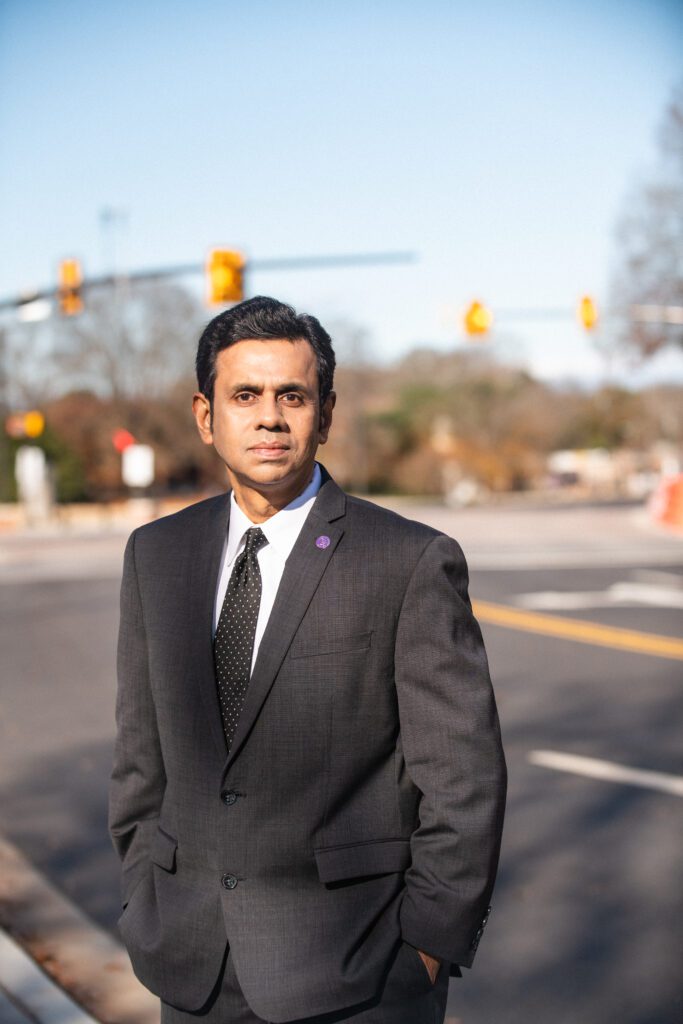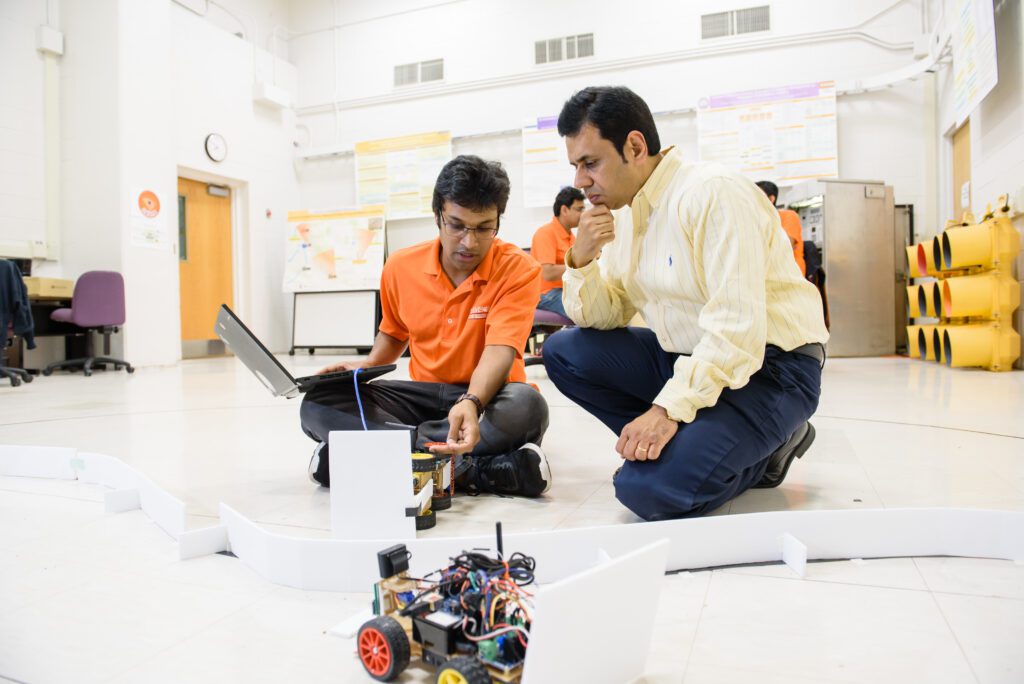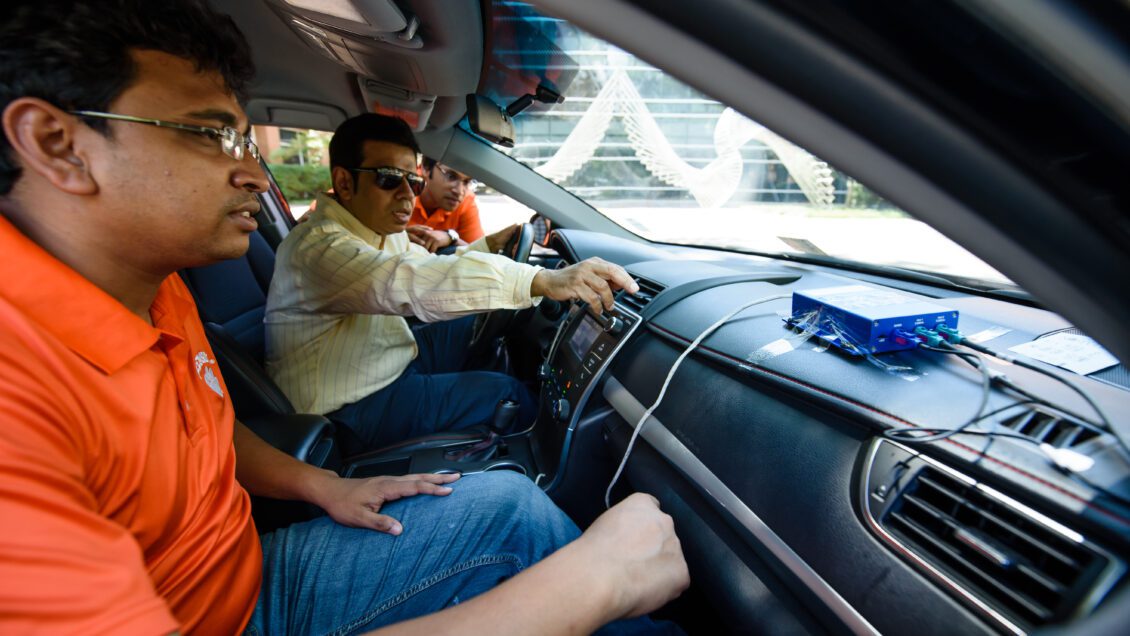Clemson University is opening a national center where researchers will devise new ways of hardening the transportation system against cyberattacks as a growing number of vehicles and more of the world’s infrastructure rely on the internet to move people and goods safely and efficiently.
The new National Center for Transportation Cybersecurity and Resiliency (TraCR) is set to receive $20 million from the U.S. Department of Transportation over a five-year grant period. Clemson was one of only five universities selected this year by the Department of Transportation to lead national University Transportation Centers.

Researchers expect to develop software and hardware that will be designed as an ironclad defense against cyberattacks. Wirelessly connecting vehicles to each other and to the roadway infrastructure holds the promise of reducing gridlock, crashes, fuel use, emissions and social inequities.
However, it also opens the transportation system to a host of cyber threats from individual hackers, criminal gangs, terrorists and other bad actors. With every vehicle and piece of infrastructure that connects to the internet, there is opportunity to steal data, invade privacy, demand a ransom, generate misinformation or even shut down a whole system. The 2021 ransomware attack on a pipeline that supplies much of the East Coast with gasoline and jet fuel is a recent reminder of the vulnerability an increasingly connected and wireless nation faces.
The new center will put Clemson on the country’s frontline defense in combatting these infrastructure attacks, with Mashrur “Ronnie” Chowdhury serving as the principal investigator and the center’s director. Partnering institutions are Benedict College, Florida International University, Morgan State University, Purdue University, South Carolina State University, the University of Alabama, the University of California, Santa Cruz, and the University of Texas at Dallas.
The new center is the latest addition in a surge of transportation research and education for Clemson. In just the last three months, Clemson has announced it is starting the nation’s first Bachelor of Science in automotive engineering, featured a Deep Orange prototype vehicle at the Consumer Electronics Show and launched AIM for Composites, an Energy Frontier Research Center.
“This new center, supported by the U.S. Department of Transportation, places Clemson and our partners at the forefront of transportation cybersecurity and resiliency,” said University President Jim Clements. “The center will combine educational and workforce development programs, ensuring we continue to meet the needs of our nation and prepare the workforce of the future. Through the vision of Dr. Chowdhury, the support of our South Carolina congressional delegation, and in collaboration with some of the country’s top leaders and innovators, we are developing a future transportation system that is safe, secure, reliable and efficient.”

The center’s researchers plan to consider myriad forms of transportation, ranging from cars, trucks, and bicycles to passenger rail, maritime shipping, and pipelines.
Chowdhury, the Eugene Douglas Mays Chair of Transportation at Clemson, said he looks forward to the challenges the center’s team will face and, more importantly, to the contributions its members will make nationwide.
“We will develop a comprehensive platform so that anyone involved in transportation will be able to defend against any cyberattack,” he said. “The platform will help detect threats and will be adaptive and resilient so that we will be able to fend off attacks that hackers haven’t even invented yet. We are also going to examine quantum computing, looking at how to evaluate threats from quantum computers and how quantum computers can be used to defend against cyberattack.”
Researchers in the new center will come from a wide range of backgrounds, bringing their expertise in everything from engineering, physics, and planning to psychology, logistics, and finance. They have included a plan for equity aimed at helping ensure cybersecurity and resiliency are enhanced but do not harm communities and the people in them.
It is Clemson’s second federally funded University Transportation Center. The first, the Center for Connected Multimodal Mobility (C2M2), was founded in 2017 and was also directed by Chowdhury. In 2021, the center received the IEEE ITS Institutional Lead Award, citing it for “contributions to cyber-physical transportation systems by addressing sensing, communication and computing aspects of computerized mobility.”
Researchers with C2M2 turned the campus itself into a testbed, wiring roads with sensors, and deploying computing devices and communication equipment.
Anand Gramopadhye, dean of the College of Engineering, Computing and Applied Sciences, said Clemson is well suited to lead the center.
“Our rich history of transportation research and education and our location in the heart of the Southeastern auto industry uniquely positions us for success in a wide range of mobility-related disciplines,” Gramopadhye said. “With this center, Clemson will be uniquely positioned to create the leaders, innovators and entrepreneurs of the future in the areas of transportation cybersecurity and resiliency. Dr. Chowdhury is a world-class scholar and researcher. We look forward to the work he and his team will produce, and I offer my wholehearted congratulations on their grant.”
Clemson on transportation innovation
“With this center, Clemson is playing a leading role in creating the transportation and cybersecurity professionals of the future. We are entering a new era in transportation, and Clemson is at the forefront of shaping its future.”
– Robert Jones, executive vice president for academic affairs and provost
“We’re appreciative of the support from Senator Graham, Congressman Clyburn and Governor McMaster throughout this process, and we look forward to working with our state, federal and private sector partners to provide the talent that will fuel the workforce of the future. The educational and workforce development programs embedded within the center will help prepare a range of future professionals, including cybersecurity analysts, engineers, planners, managers and a wide array of leaders for both public service and private industry.”
– Angie Leidinger, senior vice president for external affairs and senior adviser to the Board of Trustees
“The nation faces critical challenges as we develop the next-generation transportation system, and we look forward to working with our partners to help ensure it remains safe and secure for all. With Dr. Chowdhury’s leadership and the department’s deep well of talented faculty, students and staff, we are well positioned for success.”
– Jennifer Ogle, chair of the Glenn Department of Civil Engineering
“The National Center for Transportation Cybersecurity and Resiliency cements Dr. Chowdhury’s status as one of the nation’s leading researchers and educators in the transportation field. TraCR will be transformative for Clemson University and will be instrumental in taking the School of Civil and Environmental Engineering and Earth Sciences to the next higher level.”
– Jesus M. de la Garza, director of the School of Civil and Environmental Engineering and Earth Sciences
Get in touch and we will connect you with the author or another expert.
Or email us at news@clemson.edu

